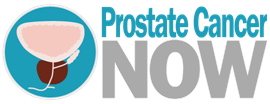Premier - Local Urologist
-
Depression
You may have recently been told that you have prostate cancer or that your prostate cancer has come back.
-
What is Depression and Prostate Cancer
ADT, or androgen deprivation therapy, has a favorable safety profile and is an effective treatment for prostate cancer that has been used for decades, however, like many medications, it can be associated with some side effects.
It’s helpful to be aware that mood changes and feeling down can be part of these potential side effects.









